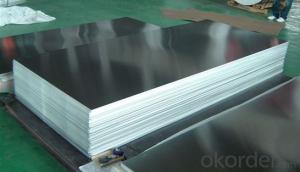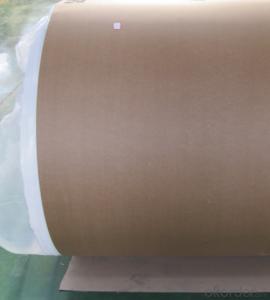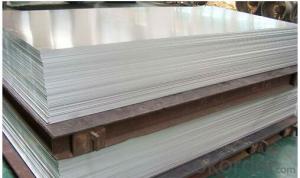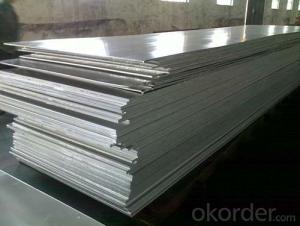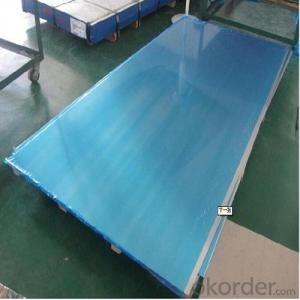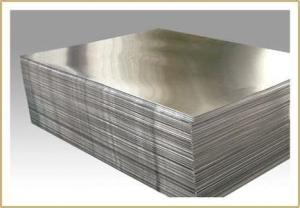5083 Aluminum Sheets for Sale - Aluminium Cold Rolled Sheet and Alloy Aluminium Slabs
- Loading Port:
- Shanghai
- Payment Terms:
- TT or LC
- Min Order Qty:
- 5 m.t.
- Supply Capability:
- 6000 m.t./month
OKorder Service Pledge
OKorder Financial Service
You Might Also Like
1.Structure of Product Description
Cold rolled aluminum sheet, cold drawn aluminum sheet, hot rolled aluminum sheet, are all widely used in the field of decoration field, etc.
The detailed grade are as follows: 1010, 1050,1060,1100, 2024, 3003, 3005, 3105, 5052,5754,5083,6061,6063,8011, etc.
The temper is include H14, H22, H24, H44,H112,H114,etc.
2. Main features of the product
a.Competitive price
b.Frist-Class Service.
c. Shortest service.
3. Image.
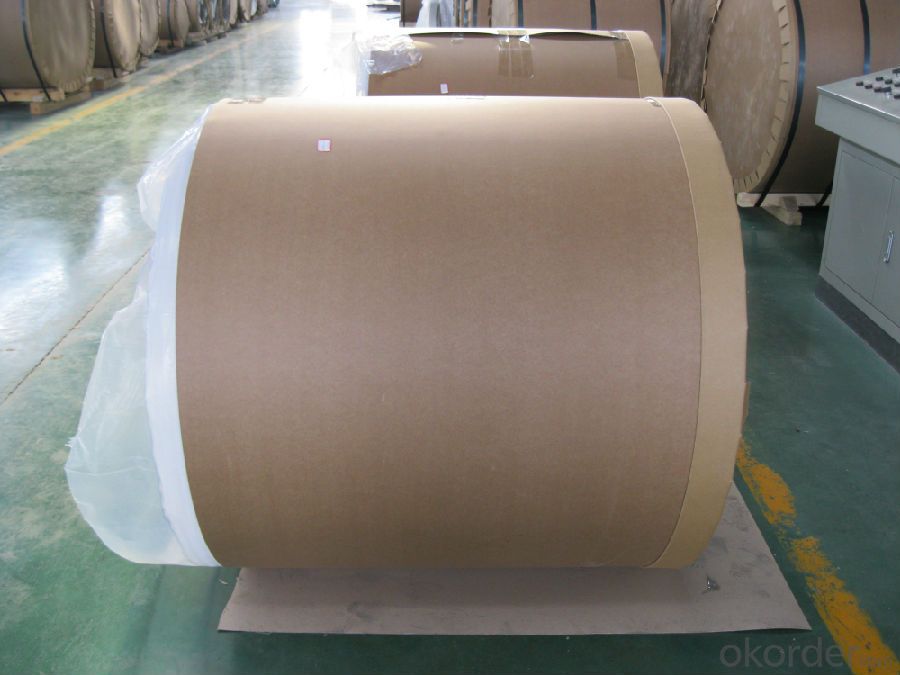
4. Product detailed sizes:
1000mm*2000mm, 1219mm*2438mm,1220mm*2440mm, 1250mm*2500mm,1500mm*3000mm, etc.
5. FAQ:
What is the quality standard?
---Usually our standard is GB3880-2006 or others.
What is the width range?
---It is from 1000mm to 2500mm, etc.
What is the length range:
---It is from 2000mm to 6000mm, etc..
Where is your client from?
---Normally it is from Japan, USA, ENGLISH, SINGAPORE, ETC.
What is your mainly products?
---Normally they are aluminum sheet, checkered sheet, mirror finish aluminium sheet, aluminum casting coil, etc.
- Q: Can aluminum sheets be used for window frames?
- Yes, aluminum sheets can be used for window frames. Aluminum is a popular choice for window frames due to its durability, lightweight nature, and resistance to corrosion. Aluminum frames offer excellent strength and stability, and they can be easily customized to fit any window size or shape. Additionally, aluminum frames require minimal maintenance and can be painted or anodized to match any desired color or finish. Overall, aluminum sheets are a versatile and reliable material for constructing window frames.
- Q: What are the different edge treatments available for aluminum sheets?
- Some of the different edge treatments available for aluminum sheets include straight edges, beveled edges, rounded edges, and hemmed edges. These treatments are used to improve the appearance, safety, and functionality of the aluminum sheets in various applications.
- Q: or aluminum ? and what other gases are released?
- Aluminium does not normally react with water because of a surface coating of the highly unreactive Al2O3 that forms on exposure to atmospheric oxygen. In the presence of strong base, however, this compound dissolves due to complexation by hydroxide, similarly to how silver chloride dissolves in ammonia. Al2O3(s) + 2OH-(aq) + 3H2O(l) ----- 2[Al(OH)4]-(aq) Once this has occured, aluminium metal, a very strong reducing agent, is exposed to water. 2Al(s) + 6H+(aq) ----- 2Al3+(aq) + 3H2(g) Even though the solution is alkaline, there is still a low concentration of H+ formed by the autoprotolytic dissociation of water. The Al3+ formed then reacts with hydroxide to produce more [Al(OH)4]-. Yes, the hydrogen gas is from the water.
- Q: 25mm thickness of hard aluminum processing to 6mm how to process, thank you all
- What size is it? What's the quantity? It is estimated that a small amount, the size of the milling.
- Q: How do I clean and maintain aluminum sheets?
- To clean and maintain aluminum sheets, start by wiping them down with a soft cloth or sponge and a mild detergent or soap. Rinse the sheets thoroughly with clean water and dry them with a clean towel. Avoid using abrasive cleaners or scrub brushes as they can scratch the surface. To maintain the shine and prevent corrosion, you can apply a thin layer of aluminum polish or wax using a clean cloth. Regularly inspect the sheets for any signs of damage or oxidation, and address them promptly to ensure their longevity.
- Q: This question asks for a guide on the correct procedure to install aluminum sheets, likely for construction or renovation purposes.
- <p>To install aluminum sheets properly, follow these steps: 1. Prepare the surface by cleaning and leveling it. 2. Measure and cut the aluminum sheets to the required size using a metal saw or tin snips. 3. Apply a bead of construction adhesive along the edges of the surface where the sheets will be placed. 4. Position the aluminum sheet, ensuring it's aligned correctly. 5. Secure the sheet with screws or nails, using a washer to prevent tearing. 6. Seal the seams and edges with a weatherproof sealant to prevent water ingress. 7. Inspect the installation for any gaps or unevenness and make adjustments as needed. Always follow the manufacturer's guidelines and safety precautions while working with aluminum sheets.</p>
- Q: Can aluminum sheets be used for electronic enclosures?
- Yes, aluminum sheets can be used for electronic enclosures. Aluminum is a lightweight and durable material that offers excellent heat dissipation properties, making it suitable for protecting electronic components. Additionally, aluminum sheets can be easily fabricated to create custom enclosures that provide electromagnetic shielding and protection against environmental factors.
- Q: is steel better for making bicycle frames.....how does it differ from the aluminum framed bikes?
- It depends on the type of riding you do. If you ride long distance you don't want aluminum, it is very stiff and will wear out your body with jolts from the road. Steel provides some degree of flex, which softens road jolts. You might want to go to a bike shop and hold a steel bike and alum bike so you can appreciate the difference in weight. Another thing about alum bikes is they do suffer from metal fatigue, so they will not last for 20 years like a steel bike (perhaps even much less depending on usage).
- Q: Are aluminum sheets suitable for artistic sculptures?
- Aluminum sheets, indeed, prove to be a suitable choice for artistic sculptures. Boasting versatility, aluminum offers numerous benefits for sculpting endeavors. First and foremost, its lightweight nature makes it easier for artists to handle and manipulate. This quality grants them the ability to fashion intricate and detailed sculptures without compromising on structural integrity. Moreover, aluminum possesses high malleability, allowing it to be molded into diverse forms and contours. This grants artists the freedom to experiment with various designs and achieve their desired artistic expression. Additionally, aluminum's resistance to corrosion and weathering makes it an ideal material for outdoor sculptures. Its durability ensures that the artwork will withstand the elements and maintain its aesthetic appeal over time. Furthermore, aluminum sheets can be effortlessly welded or joined together, enabling artists to create larger and more intricate sculptures. All in all, aluminum sheets furnish artists with a flexible and long-lasting material that nurtures creativity and guarantees longevity in their sculptural masterpieces.
- Q: How does the surface treatment affect the corrosion resistance of aluminum sheet?
- Enhancing the corrosion resistance of aluminum sheet is greatly influenced by its surface treatment. Aluminum itself possesses inherent corrosion resistance due to the formation of a thin oxide layer on its surface. However, this oxide layer may not always be sufficient in safeguarding the metal against aggressive environments or harsh conditions. To significantly improve the corrosion resistance of aluminum sheet, various surface treatments such as anodizing, chromating, or painting can be employed. Anodizing involves the creation of a controlled oxide layer on the aluminum's surface through an electrochemical process. This layer exhibits high resistance to corrosion and effectively protects the metal from various corrosive agents. On the other hand, chromating involves the application of a chromate conversion coating that forms a thin film on the aluminum surface. This coating acts as a barrier, preventing the penetration of corrosive substances and subsequent oxidation. Additionally, it enhances the adhesion of subsequent paint or adhesive layers. Painting is another commonly utilized surface treatment for aluminum sheets. By applying a paint layer, the metal is not only shielded from corrosion but also acquires an aesthetically pleasing finish. The paint functions as a physical barrier that safeguards the aluminum against moisture, chemicals, and other corrosive elements. The selection of the appropriate surface treatment depends on the specific application and the desired level of corrosion resistance. Anodizing is often preferred in construction, automotive, and aerospace industries as it provides exceptional corrosion protection and enhances the appearance of the metal. Chromating is commonly utilized in electrical and electronic applications, as it offers both corrosion resistance and electrical conductivity. Painting is suitable for applications where both aesthetics and corrosion protection are of equal importance, such as architectural elements or consumer products. In conclusion, the corrosion resistance of aluminum sheet is significantly influenced by its surface treatment. Anodizing, chromating, and painting all contribute to enhancing the protective properties of aluminum against corrosion, thereby extending its lifespan and ensuring its durability in various environments.
Send your message to us
5083 Aluminum Sheets for Sale - Aluminium Cold Rolled Sheet and Alloy Aluminium Slabs
- Loading Port:
- Shanghai
- Payment Terms:
- TT or LC
- Min Order Qty:
- 5 m.t.
- Supply Capability:
- 6000 m.t./month
OKorder Service Pledge
OKorder Financial Service
Similar products
Hot products
Hot Searches
Related keywords
